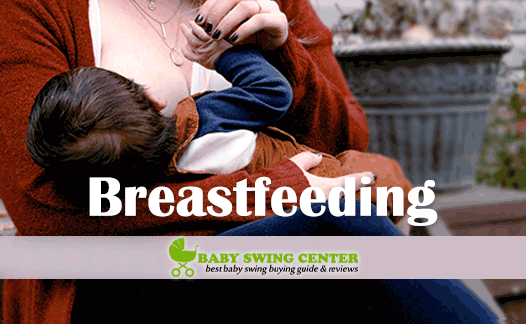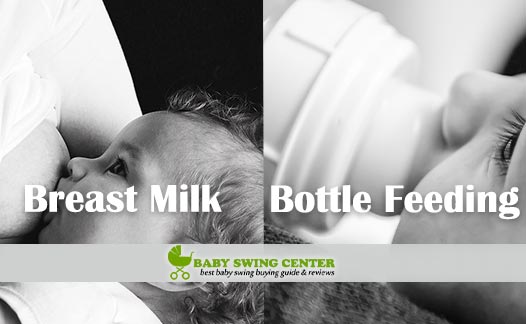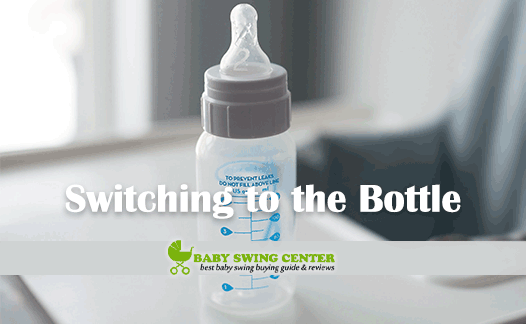
The period of your life that you are breastfeeding your baby is one of the most wonderful and memorable times of your life. It is a time when you will bond with your baby and play an essential role in their wellbeing and development. However, all good things must come to an end and, in time, you will decide to stop breastfeeding your baby. Mothers are often unsure about when they should stop breastfeeding and how they should go about doing this.This is most common question that, When Should I stop Breastfeeding and how? Here you will read the average age to stop breastfeeding.
Quick Navigation
- When Should I Stop Breastfeeding and How?
- Current Health Recommendations
- Personal Preference
- Other Commitments and Responsibilities
- Switching to Expressing
- Switching to the Bottle
When Should I Stop Breastfeeding and How?
Current Health Recommendations
Current guidelines recommend that you should breastfeed a baby exclusively until they are at least six months old. This means that your baby needs only breast milk and there is not need to supplement this with formula milker solid food. Your breast milk provides all the nutrients your baby needs for growth and development. Many moms choose to follow these guidelines, and many continue to breastfeed their babies beyond this point. Others, for a variety of reasons, choose not to breastfeed their babies for the full six-month period.
Personal Preference
The question is when should I stop breastfeeding?The personal preferences of a mom often influence her decision regarding the length of time she should breastfeed. If the mother enjoys breastfeeding, then she is likely to continue for as long as possible. A mother who does not enjoy breastfeeding may prefer to stop sooner. Similarly, the life experiences of a mother may also impact on this decision. For example, if the woman was breastfeed herself and her family is supportive of her decision to breastfeed, then extended breastfeeding is more likely.
Other Commitments and Responsibilities
Each woman’s situation in life is different, and her other responsibilities and commitments may dictate the length of time a woman will continue to breastfeed. For example, if her return to work is a necessity then she may decide to switch to expressing breast milk or bottle feeding.

Switching to Expressing
One option for mothers who decide to stop breastfeeding is to switch to expressing breast milk and then feed their baby with a bottle. The benefit of choosing this option is it allows the baby to continue to benefit from the breast milk but also gives the mother the freedom to work or focus on other aspects of her life.
There are some difficulties a mother may face when stopping breastfeeding in the initial stages, but there are solutions to these problems. The first issue is that if a mother who was breastfeeding attempts to feed their baby with a bottle, the baby will instinctively attempt to feed on the breast and may become distressed when the breast is refused. The simplest solution to this issue is for the mother to allow another person to feed their baby from the bottle. A further problem some mothers may encounter is the baby rejecting a bottle teat. This is because it is a different shape and texture to a nipple. There are bottle treats available that mimic the shape and texture of a mother’s nipple; they are flatter and softer than regular bottle teats. Using these may resolve this issue.
Switching to the Bottle
Some mothers prefer to switch straight from breastfeeding to bottle feeding using formula milk. The mother may face the same issues as when switching to expressing milk. You can use the same solutions to resolve these potential problems.

Another tip is to make the change gradually. Rather than simply stopping breastfeeding and immediately switching to breastfeeding, make the change one feed at a time. For example, continue to feed on the breast during the night but start the day with formula milk and add extra bottle feeds over the course of the next few days or a week. Patience is the key as some babies make the transition smoothly while for others it can take a little time. If you are struggling to make the switch, then a health professional can offer you further tips on a successful transition. How and when to stop breastfeeding is a personal decision that is different from one mother to the next.
Also, there are many different factors that can influence this decision. Buying special teats and allowing someone else to feed your baby are two of the best tips for successfully making this switch, regardless of whether you are changing to formula milk or you are planning to express breast milk for the bottle. Although it may take some time, most babies can successfully transition from breastfeeding to bottle feeding without the need for additional support.Now, you understand when should I stop breastfeeding.if you have any question regarding this stop breastfeeding guideline let us know via comment section.